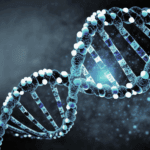Most of us know the usual suspects when it comes to unhealthy habits: too much sugar, too little exercise, not enough sleep. But one common ingredient might be playing a sneakier role than we ever imagined—not just in our physical health, but in our mental well-being too.
Yep, we’re talking about salt.
A new study is raising eyebrows in the scientific community by suggesting that high-salt diets could actually increase the risk of depression and anxiety. That’s right—your late-night French fry indulgence might not just be hitting your blood pressure, it might also be messing with your mood.
🧪 What the Mice Taught Us
In this study, researchers observed mice that were given a diet with significantly higher salt content than usual—roughly equivalent to the kind of sodium overload found in many processed and fast foods that humans regularly consume.
Over the course of five weeks, something strange began to happen. The mice, typically curious and active creatures, became withdrawn. They explored less. They slowed down. They showed signs of what scientists recognize as mouse-model depression—yes, that’s a real thing.
This wasn’t just behavioral. When researchers examined their brains and immune systems, they found a key player: an immune molecule called interleukin-17A, or IL-17A for short. Levels of IL-17A were elevated not just in the mice’s bloodstreams but also in brain regions that are closely linked to emotional regulation—areas like the prefrontal cortex and hippocampus.
Read more: Food Packaging Found to Release Microplastics Into Every Single Meal, Study Finds
🧬 Immune Cells Gone Rogue
So where was this IL-17A coming from? The answer lay in a unique group of immune cells called gamma delta T cells.
These cells are part of the body’s first line of defense. Usually, they help protect us from infections. But in the salty-diet mice, something changed. Although the number of these cells didn’t increase, their activity levels went into overdrive. They began pumping out more IL-17A than normal.
In a twist that caught researchers’ attention, when scientists chemically blocked these overactive immune cells in the mice, the depressive behavior vanished. The mice returned to their regular, active, inquisitive selves. This offered a strong clue: the salt-induced mood changes weren’t random. They were biologically driven.
Read moreL Fiber That Is Found In Everyday Foods Can Help Remove Forever Chemicals From Your Body
⚡ Salt’s Sneaky Energy Shift
Beyond just triggering a hyperactive immune response, salt also appeared to tweak how the immune cells produced and used energy. Think of it like switching a car from gasoline to jet fuel—suddenly everything’s running hotter and faster, but not necessarily better.
This shift may be what pushes the gamma delta T cells to behave in an abnormal, aggressive way. The overstimulation leads to more IL-17A, which then appears to disrupt the brain’s normal chemical balance and mood regulation.
And here’s the kicker: this pathway is completely separate from how psychological stress causes depression. That means that while stress and salty foods might both drag down your mood, they’re working through entirely different biological systems. It’s not a one-size-fits-all scenario. The mind, it seems, is impacted by multiple moving parts.
🍟 A Diet-Mood Connection That’s Hard to Ignore
This isn’t the first time salt has been linked to mental health. Previous studies in humans have already hinted that diets high in sodium tend to correlate with higher levels of anxiety, depression, and general mental distress. Likewise, people who cut down on salt often report better focus, more energy, and improved moods.
But this new study adds something crucial: a potential mechanism. It’s not just a casual connection—it’s a biological one. Salt influences how the immune system behaves, which in turn seems to influence how the brain functions.
This immune-brain link could help explain why some people feel emotionally off even when everything else in their life seems fine. It’s not just “in your head”—it might be in your immune system, responding to what’s on your plate.
🔮 What It Could Mean for the Future
If these results hold up in human studies, we might be on the verge of a major shift in how we view mental health treatment and prevention.
Right now, most approaches to treating depression and anxiety focus on therapy, medication, and stress management. But what if nutrition—specifically, reducing sodium—could also play a meaningful role? Imagine mental health interventions that involve not just counseling but also personalized diet plans or even medications that block the salt-activated immune signals.
It’s not just about putting down the salt shaker. It’s about rethinking how deeply food and mood are intertwined.
🧂 So… Should You Panic Over Your Pretzels?
Not necessarily. As with all science, this is just one piece of a much bigger puzzle. What we eat affects our bodies in complex, sometimes surprising ways, and salt is only one of many ingredients in that equation.
But if you’ve been feeling more down than usual—and your diet happens to be full of salty snacks, fast food, or processed meals—it might be worth making a few adjustments. You don’t need to swear off all sodium forever, but a little moderation might go a long way, not just for your heart, but also for your head.
Read more: ‘Old People Smell’ Can Be Cured With This One Common Food, Experts Say
🧠 Final Thought: You Are What Your Immune Cells Eat
We’ve all heard the saying “you are what you eat.” But this research adds a fascinating twist: your immune cells are also what you eat—and they might just be steering your mood.
Your immune system isn’t just a germ-fighting force that kicks in when you get sick. It’s constantly active, even when you’re feeling healthy, quietly patrolling your body and influencing everything from inflammation to energy use—and, as it turns out, possibly even your emotions.
In this study, when mice were fed a salty diet, a specific group of immune cells (gamma delta T cells) didn’t multiply—but they did change their behavior. They became more aggressive, started churning out inflammatory signals like IL-17A, and this chemical cascade reached areas of the brain tied to mood, motivation, and emotional stability.
So, in essence, the salt didn’t just stay in the bloodstream or the stomach. It sent ripples through the immune system and straight into the brain, nudging those mice toward depressive-like behavior.
So yes, you are what your immune cells eat. Feed them well—and they might just return the favor.










